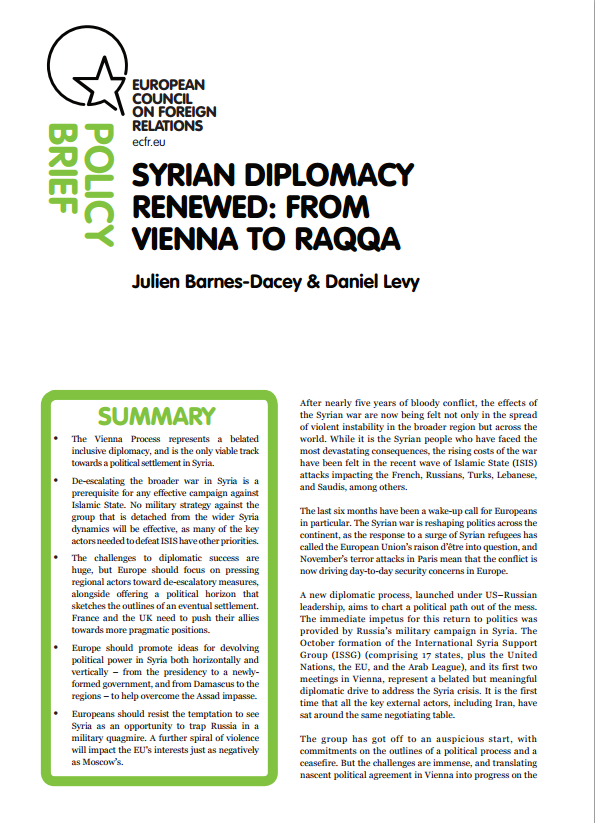Syrian Diplomacy Renewed: From Vienna to Raqqa
An “Islamic State first” strategy, that neglects the urgent need to secure political progress and de-escalation in Syria will fail
While there will need to be a military component in the fight against ISIS, it will not succeed if it is not part of a much broader political strategy.
The authors argue that the Vienna process, which represents belated inclusive diplomacy should be the immediate priority for European governments and that an approach which over-emphasizes military action will be missing a huge opportunity – and risks doing more harm than good. Attention should now be focused on securing accord on immediate de-escalatory steps and a longer term political process that aims to devolve power as a means of overcoming the ongoing Assad impasse.
While a political solution will not on its own be enough to end the ISIS threat, the conflict has served as the key recruiting tool for ISIS, while provoking a governance vacuum that the group has occupied. De-escalating the overall Syria conflict is necessary for closing this space down and re-focusing key actors, notably Iran, Saudi Arabia and Turkey, on the ISIS threat.
Barnes-Dacey and Levy assert that Europeans have been all too absent from high-level diplomatic engagement over Syria, allowing others to take the lead. But with the Syrian war and its resulting surge of refugees re-shaping politics across the continent there is too much at stake to remain bit-part players. The Turkish downing of a Russian fighter jet on 24 November is a marker of the risks of a further international escalation..
They contend that European governments can make a vital and distinct contribution to the renewed diplomatic process by adopting an approach aimed at softening up allies for necessary pragmatism as opposed to indulging an unwillingness to compromise.
The European Council on Foreign Relations does not take collective positions. ECFR publications only represent the views of their individual authors.



